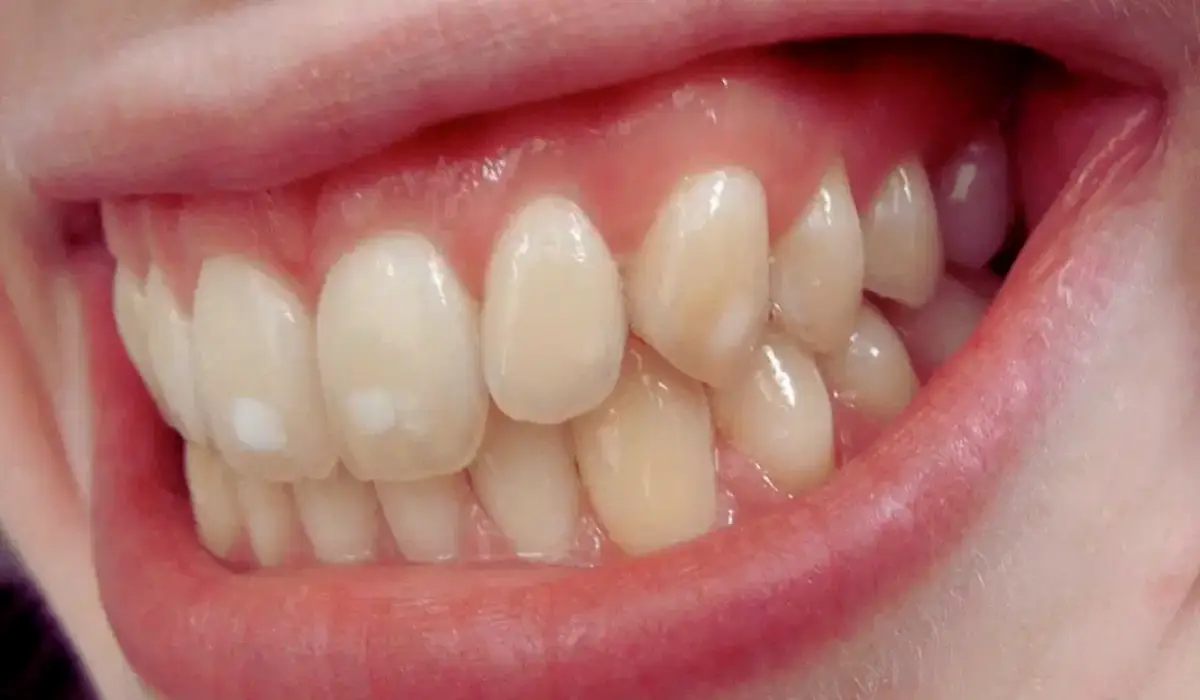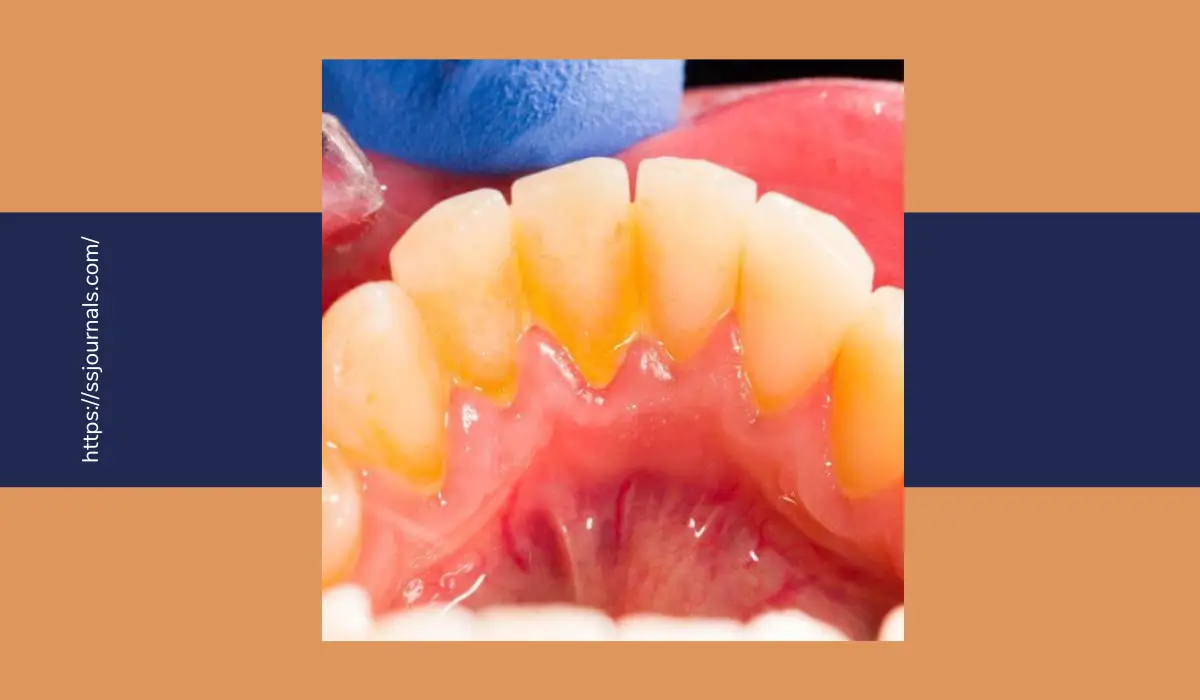Calcium deposits on teeth, also known as calculus or tartar, are a common dental issue. These calcium deposits are hardened plaque that sticks to the teeth, often near the gumline or between teeth.
While a small amount of plaque is normal, too much leads to calcium deposits that cannot be removed just by brushing and flossing. Calcium deposits on teeth not only look unsightly but they can also lead to serious gum disease and tooth decay if left untreated for too long.
So, today let’s take a look at several home remedies and natural solutions that may help prevent further development or reduce existing calcium deposits on teeth.
What Are Calcium Deposits On My Teeth? prevention Tips!

Before, diving more into the article, let’s first learn what are calcium deposits. Calcium deposits on teeth, known clinically as supragingival or subgingival calculus, occur when there is too much plaque on teeth that leads to mineralization and hardening.
This plaque accumulates due to poor oral hygiene, not brushing or flossing well enough to disrupt the plaque, and leads to hardened calcium phosphate salts sticking to teeth surfaces. Once hardened, these calcium deposits cannot be removed at home and require professional cleaning by a dentist or hygienist.
Do calcium spots on teeth go away?
So, do calcium spots on teeth go away on their own? Unfortunately, existing calcium deposits on teeth do not go away on their own. Brushing and flossing cannot remove them once they have hardened and adhered to teeth.
Removing established calcium requires professional cleaning by a dental hygienist or dentist. They have the proper tools and methods to scrape off and polish away calculus while minimizing any damage to the teeth underneath.
However, if the contributing factors are addressed, like improving oral hygiene and reducing plaque, new calcium deposits may stop forming. Over time with proper dental care at home and regular professional cleaning, the deposits can be well controlled.
Calcium deposit On Teeth prevention tips
Good oral hygiene is key to preventing calcium deposits from forming and continuing to accumulate on teeth. Keep these calcium deposit prevention tips in mind.
- Brush teeth thoroughly twice per day with a soft or medium bristled brush. Take at least 2 minutes each time. Reach all areas of teeth, especially near the gum line.
- Floss once per day. Use proper flossing technique to reach between teeth and disrupt plaque.
- Use antibacterial mouthwash once or twice daily to reduce oral bacteria.
- Limit sugary and acidic foods and brush after consuming them when possible.
- Drink water throughout the day to help wash away food debris and neutralize acids.
- Chew sugar-free gum with xylitol to increase saliva flow.
- Get regular professional cleanings every 6 months to prevent plaque accumulation and remove calcium deposits before they severely adhere to teeth.
By disrupting plaque, bacteria, and acids through good daily and long-term habits, less chance for deposits to form over time.
How to remove calcium deposits on teeth at home?
Let’s finally come back to the topic and find out how to remove calcium deposits on teeth at home. While home removal of existing calcium deposits is very difficult, it is not impossible. Once hardened, the following methods may help reduce mildly attached deposits when used diligently over time.
- Oil pulling involves swishing around oils like coconut, sesame, or sunflower oil in the mouth for 10-20 minutes per day. Some evidence shows this can protect against plaque buildup and help remove debris from teeth.
- Eating crunchy fruits and vegetables like apples, celery, pears, and carrots may help mechanically scrape some deposits, especially if very mild. Be gentle, do not overdo it.
- Using an oral irrigator can wash away some debris from deposits. Aim the water jet at affected areas but start on the lowest setting first.
- Brushing with baking soda helps neutralize acids and mechanically remove some stains and debris. Form a paste with water and gently rub on the teeth with a soft brush. Rinse well after.
- Making a mouth rinse with hydrogen peroxide diluted in water may bubble away and loosen some deposit material with regular use. Mix equal parts peroxide and water and rinse nightly.
Be realistic in expectations, however, as removal will be minor, and significant calcium deposits require professional cleaning for definitive improvement. The goal should be deposit prevention whenever possible through oral hygiene measures.
Calcium deposits on teeth are an inconvenient, unsightly, and potentially serious dental health concern. Plaque left on the teeth hardens into these calculus deposits that cannot be brushed or flossed away once adhered to teeth surfaces.
While small amounts close to the gum line are somewhat common, excess buildup causes dental issues and needs to be addressed and prevented when possible. Existing hardened calcium deposits will not go away permanently without professional dental cleaning.
Also Read:- Kill Tooth Pain Nerve In 3 Seconds Permanently: Effective Tips!
Final Result
Some home remedies and natural solutions may reduce debris and prevent the deposits from worsening while waiting to see a dentist or hygienist. Good oral care routines at home and regular professional teeth cleanings help lower the risk of significant calcium deposits forming. By staying aware of the causes and preventative steps for calculus on teeth, worse plaque-related problems can often be avoided.
With increasingly frequent professional and proper daily cleaning over the years, the likelihood of severe calcium deposits returning after removal can stay quite low. One’s oral and overall health improve as a bonus too. However, some calcified plaque buildup with age is fairly normal no matter how diligent oral hygiene habits are. As long as one stays on top of control and prevention every day and routinely gets thorough teeth cleanings, calcium deposits should not pose too much trouble long term.
Do you feel knowledgeable and empowered to prevent and safely manage calcium deposits on your teeth after reading this article?

